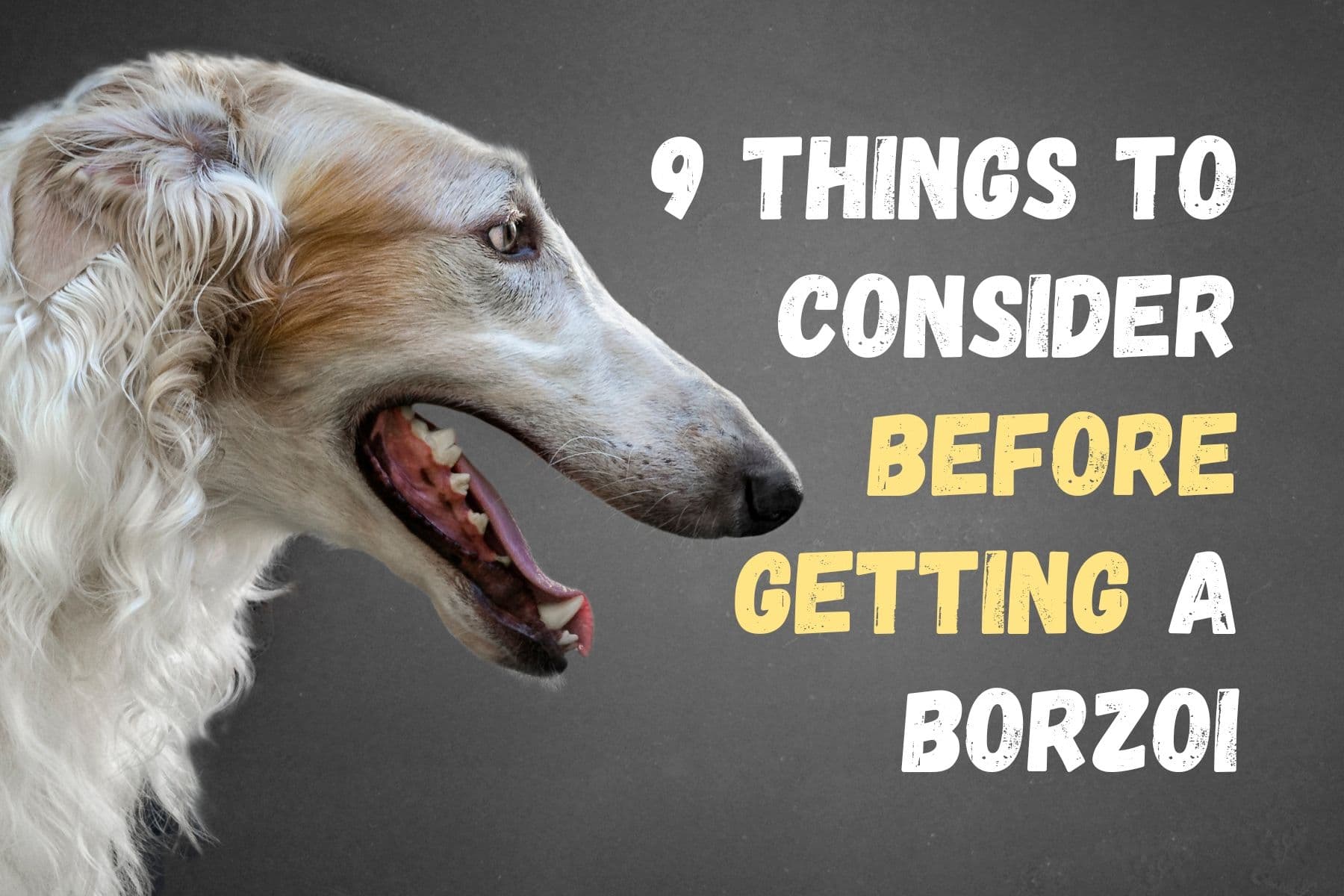Consider These 9 Factors Before Getting a Borzoi

Thinking about bringing a Borzoi into your life? I get it — their elegant looks and gentle demeanor are hard to resist. But before you commit, let’s talk about what it’s really like to live with one of these graceful giants. Borzois are not your average house dog, and owning one takes more than admiration for their beauty.
Here’s what you need to know — from someone who’s been through it.
1. They’re Big — Really Big
Borzois can easily stand over 2 feet tall and weigh up to 100 pounds. That’s a lot of dog, and it comes with a few realities:
- You’ll need plenty of space — tiny apartments or homes without a yard aren’t ideal.
- Everything costs more: bigger crates, more food, stronger leashes.
- Their size can intimidate strangers, so you’ve got to be confident handling them in public.
2. They Need Room to Run
These dogs were bred to chase down wolves in Russia — yes, wolves! So they’ve got serious speed and stamina. Expect to give them at least an hour of exercise daily. And that doesn’t just mean a walk around the block.
Off-leash play is great, but only in a fully fenced area. Trust me, once a Borzoi spots something that looks like prey, they’re gone — and calling them back won’t work.
3. Grooming Takes Time
That long, flowing coat? Beautiful, but high-maintenance. You’ll need to brush your Borzoi at least once a week — more during shedding seasons. Use a slicker brush and detangling comb, and pay close attention to their ears (they're prone to infections if not kept clean and trimmed).
You’ll also need to stay on top of nail trims, dental care, and occasional baths.
4. They’re Smart — and Stubborn
Borzois are intelligent, but very independent. Training one isn’t about dominance or drilling commands — it’s about patience and positive reinforcement. Treats and praise go a long way, while harsh corrections can damage your bond.
Start early with socialization and basic obedience. If you’re consistent and kind, they’ll come around — but they’ll never be robotic followers.
5. Prey Drive Is Real
This is not a dog you can trust off-leash in open areas. Their prey drive is deeply ingrained, and they’ll chase after anything small and fast — squirrels, cats, even small dogs.
If you have other pets at home, early socialization is a must. Some Borzois can live peacefully with cats or smaller animals, but it takes time, management, and supervision.
6. Sensitive Souls
Borzois pick up on your mood more than most dogs. They thrive in calm, stable homes and don’t do well with yelling, chaos, or frequent changes. They’re affectionate and loyal, often forming strong bonds with one or two people.
If you’re looking for a Velcro dog who quietly shadows you around the house, this might be your breed. But they don’t tolerate being left alone for long — separation anxiety is common.
7. Health Considerations
Borzois are generally healthy, but like all breeds, they have their risks:
- Heart issues like DCM
- Bloat (a life-threatening emergency)
- Joint problems (hip/elbow dysplasia)
- Eye diseases like PRA and cataracts
- Hypothyroidism
Work with a reputable breeder who screens for genetic health problems, and keep up with regular vet visits.
8. They’re Not Low-Maintenance
Between the grooming, exercise, training, and emotional needs, Borzois take time and attention. They’re not a good fit if you’re often out of the house, don’t have a yard, or want a dog that will obey every command.
9. But They’re Incredibly Loving
Despite everything — or maybe because of it — Borzois make amazing companions. They’re quiet, gentle, and deeply affectionate. They’re typically great with kids (though not overly playful), and they bring a calm, elegant presence into the home.
If you’ve got the time, space, and heart for a Borzoi, they’ll reward you with loyalty and love like no other. Just be ready for some serious grooming sessions — and to never eat dinner alone again.
Take the Quiz
Is a Borzoi Right for You?
The Borzoi is a graceful and elegant breed known for its calm demeanor and striking appearance. Discover if this noble companion is your perfect match by taking the quiz! Answer all questions below to discover your compatibility score and get personalized insights.
Question #1: What is the main reason you want a dog?
Question #2: How active is your lifestyle?
Question #3: How much time can you dedicate to your dog daily?
Question #4: What best describes your home environment?
Question #5: What size dog do you prefer?
Question #6: What personality traits do you want in your dog?
Question #7: How much grooming can you handle?
Question #8: Who else lives with the dog?
Question #9: Is this your first dog?
Please answer all 9 questions to see your results
